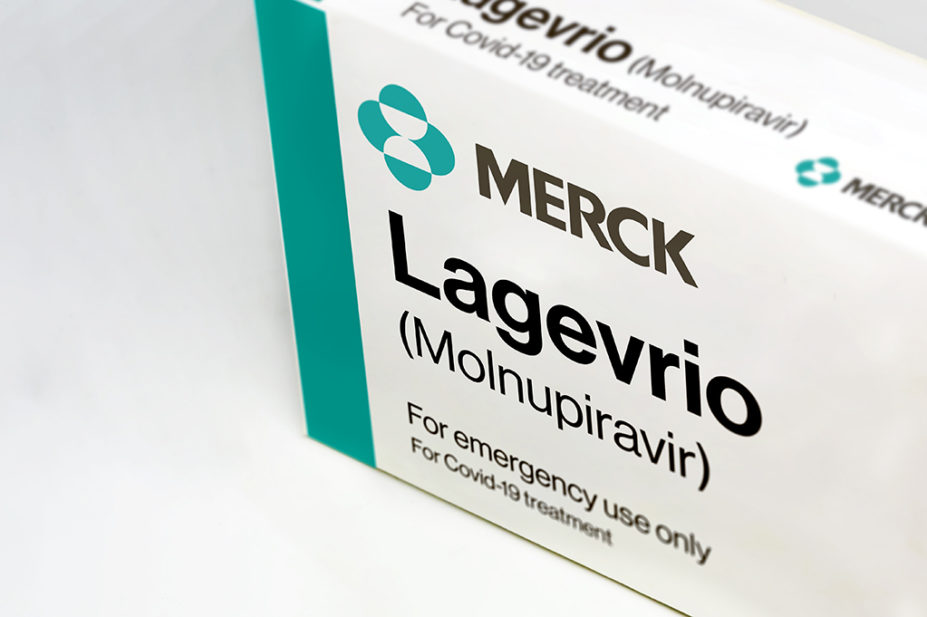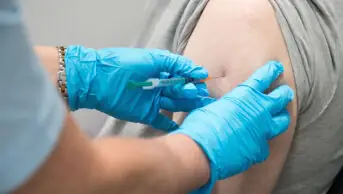
Shutterstock.com
The National Institute for Health and Care Excellence (NICE) has provisionally recommended nirmatrelvir plus ritonavir (Paxlovid; Pfizer), tocilizumab (RoActemra; Roche) and baricitinib (Olumiant; Eli Lilly) as options for treating COVID-19 in adults.
However, in draft guidance, published on 16 November 2022, NICE decided not to recommend molnupiravir (Lagevrio; MSD and Ridgeback Biotherapeutics), remdesivir (Veklury; Gilead) or tixagevimab plus cilgavimab (Evusheld; AstraZeneca) on the grounds that they were not cost effective.
The decision follows a review of the clinical and cost-effectiveness of medicines currently being used in the NHS to treat COVID-19.
In a press release announcing its draft guidance, NICE said that the appraisal was about routine commissioning and “does not address their use in exceptional (i.e. pandemic) circumstances”.
Nirmatrelvir plus ritonavir, tocilizumab and baricitinib were all recommended because there was “some evidence” suggesting that they are effective in treating COVID-19 and cost-effective.
Nirmatrelvir plus ritonavir is recommended for adults who do not need supplemental oxygen for COVID-19, with an increased risk for progression to severe COVID-19; tocilizumab is recommended for treating COVID-19 in adults who are receiving systemic corticosteroids and need supplemental oxygen or mechanical ventilation; and baricitinib is recommended as an option for treating COVID-19 in adults, subject to it receiving a marketing authorisation in Great Britain for this indication.
Although there was evidence suggesting that molnupiravir and remdesivir were effective at treating COVID-19, the NICE committee said it did not recommend these treatments because, at their current price, the likely cost-effectiveness estimates were higher than NICE “usually considers an acceptable use of NHS resources”.
In the case of casirivimab plus imdevimab (Ronapreve; Roche), sotrovimab (Xevudy; GSK and Vir Biotechnology) and tixagevimab plus cilgavimab, the committee said it felt it was “highly uncertain” whether these treatments were effective against the Omicron COVID-19 variant. They said that these treatments did not represent a cost-effective use of resources and were therefore not recommended.
Helen Knight, interim director of medicines evaluation at NICE, said: “Our task has been to evaluate the clinical and cost-effectiveness of treatments for COVID-19, many of which are currently being made available in England under interim UK-wide pandemic-specific access arrangements.
“In doing so, we need to strike a balance between the effectiveness of a treatment and the best use of public funding as we come out of the pandemic, to ensure the NHS can continue to deliver maximum value to the taxpayer.
“The evidence for all the treatments we’ve looked at is highly uncertain because most of the studies were carried out before the emergence of the now dominant Omicron variant of COVID-19.”
However, the committee said it was “ready to work” with all companies that manufactured products not recommended in the draft guidance, as well as with NHS England to explore whether there was scope for any commercial or other solutions that could address the issues highlighted by the independent appraisal committee.
A spokesperson for MSD, which manufactures molnupiravir, said it was “deeply disappointed” with the draft findings set out in the NICE appraisal consultation document.
“As these draft recommendations stand, they are not, in the opinion of MSD, best serving patient needs by having only one treatment recommended in the community setting,” they said.
“As acknowledged by NICE themselves, it is the rate of hospitalisation used within their model which is a key driver of cost-effectiveness. The rate suggested by NICE was largely informed by data generated during the Omicron wave (and at a time of high vaccine uptake), as opposed to the rates reported in the clinical trials underpinning each of the products in this appraisal, when different variants of the virus were circulating.”
NICE is also conducting a separate appraisal of Evusheld for preventing COVID-19.


